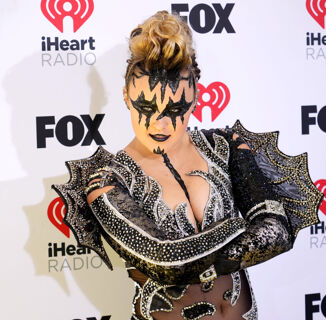In the past, before the creation of this beautiful beast we call the Internet, there weren’t many ways to combat queer erasure on the page. But thankfully we live in a different time, one in which we’re free to call out such erasure with the simple shorthand of: “and they were roommates.”
But where did this phrase come from, and how recent is it? Come take a journey into the very recent past to learn the fascinating origin story of the beloved meme.
Related:
Meet William Dorsey Swann, a radical Black queen who changed history
William Dorsey Swann is one of the most impactful queer figures in American history
The year was 2014. Vine (RIP) was in full flower, and in late October, one user (@mattsukkar) posted a clip of a woman walking down the street talking on the phone, with only a single snatch of dialogue audible: “and they were roommates.”
Your internet debrief
Stay ahead of the most scandalous, hilarious, and mind-boggling internet content delivered directly to your inbox twice a week.
After Vine died in 2016, a thoughtful user uploaded the clip to Tumblr, where it continued to get traction. Soon enough, the phrase “oh my god, and they were roommates” took on a life of its own. But it wasn’t until 2017 that the phrase gained a deeper meaning inside of queer “ship” circles on Tumblr. When users referred to certain characters living together at any time—for instance, H*rry P*tter (cursed reference) and Percy Weasley—the phrase served to imply, humorously at first, that queer-coded characters, or characters with heavy queer ship lore, might often be labelled roommates when a writer is trying to side-step the queer implications.
What’s the joke behind the “and they were roommates” vine?
byu/Millibyte inNoStupidQuestions
But It Goes Deeper…
But that’s not, in fact, the origin of the term of its queer implications. Believe it or not, “roommate” as euphemism for life partner dates way back to the Victorian era, when many queer couples had to pretend to just be roommates in order to safely share a home together and avoid speculation (and possible criminal charges.)
But what started as an attempt (by queer people) to keep themselves self from societies that criminalized queerness turned into a way for straight historians and writers to completely ignore queer history and presume straightness in their reporting. In obituaries from the pre-Stonewall era 20th century, it wasn’t uncommon for a widowed partner to be described by the press as a “roommate” and nothing more. In the absence of any kind of legal partnership protections, it was seen as fine and dandy to sanitize an obituary by calling a lover a roommate. But after queer folks gained more visibility (and the right to marry), the continued use of “roommate” to describe a partner took on a more sinister aspect. In the same way that trans folks were often referred to by their dead names and dead genders by uncaring, bigoted members of the press, queer folks continued to have their history and partnerships erased by folks who didn’t know better, or simply didn’t care about being accurate.
You can see that erasure even today—though not without at least someone using the helpful tag of “and they were roommates” to call them out on this.
And they were roommates
byu/takeheedyoungheathen inSapphoAndHerFriend
So yes—what started as a silly meme is actually a kind of activism decades in the making. Queer love stories are complex, important pieces of history, and to mischaracterize them as mere friendships is a persistent type of erasure that we simply don’t have to tolerate anymore.
Don't forget to share:
Help make sure LGBTQ+ stories are being told...
We can't rely on mainstream media to tell our stories. That's why we don't lock our articles behind a paywall. Will you support our mission with a contribution today?
Cancel anytime · Proudly LGBTQ+ owned and operated
Read More in The Internet
The Latest on INTO
Subscribe to get a twice-weekly dose of queer news, updates, and insights from the INTO team.
in Your Inbox














